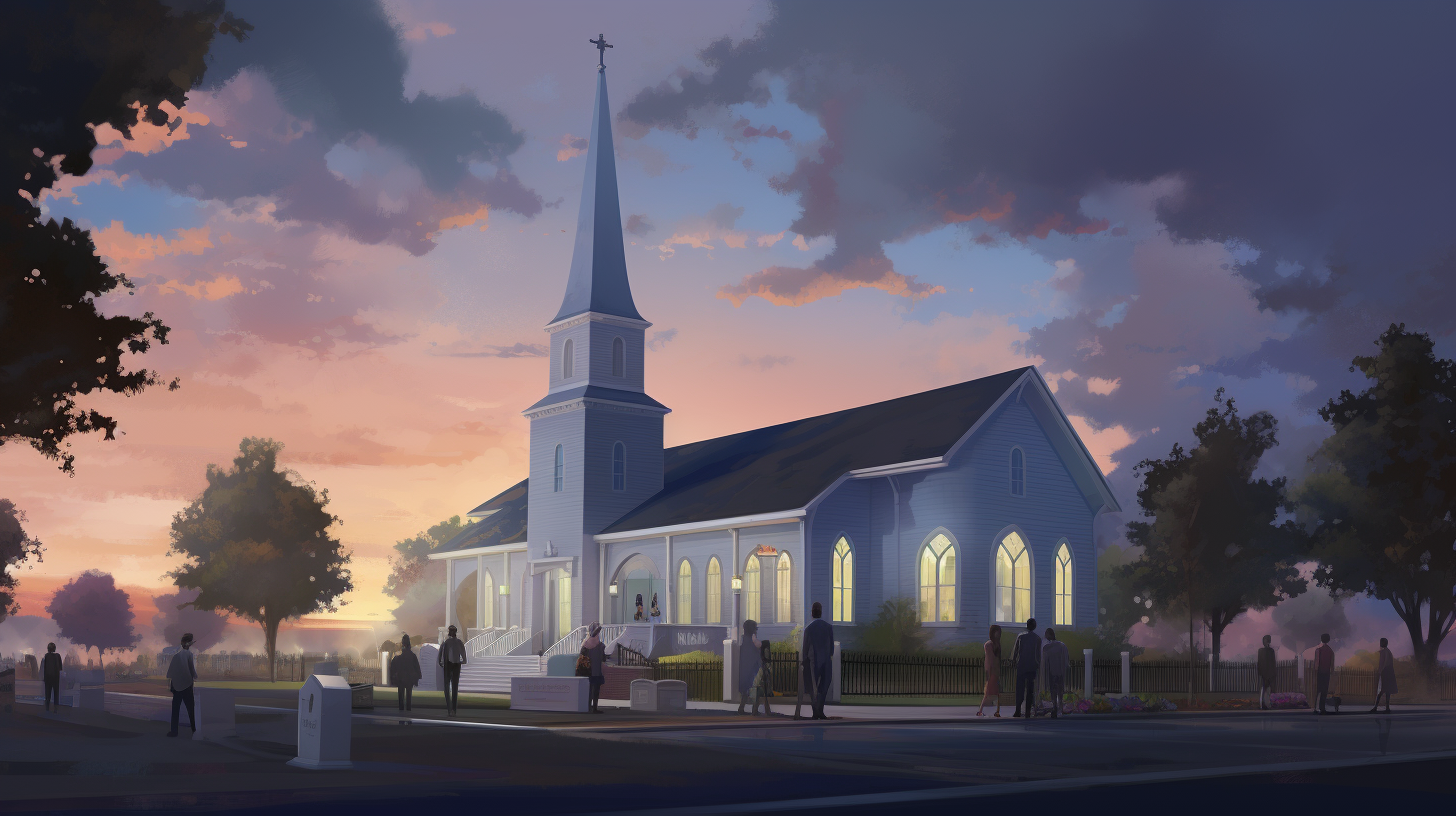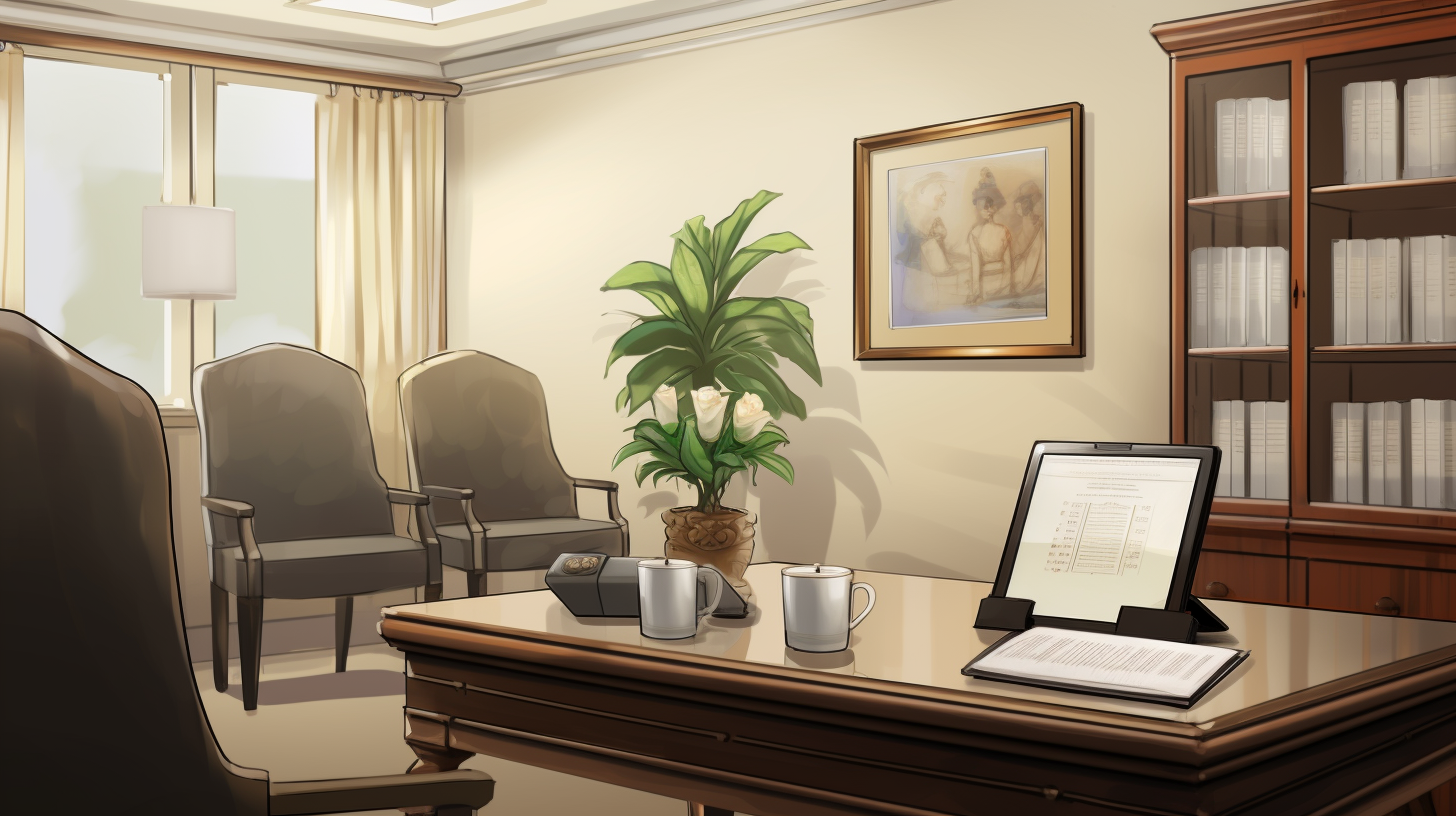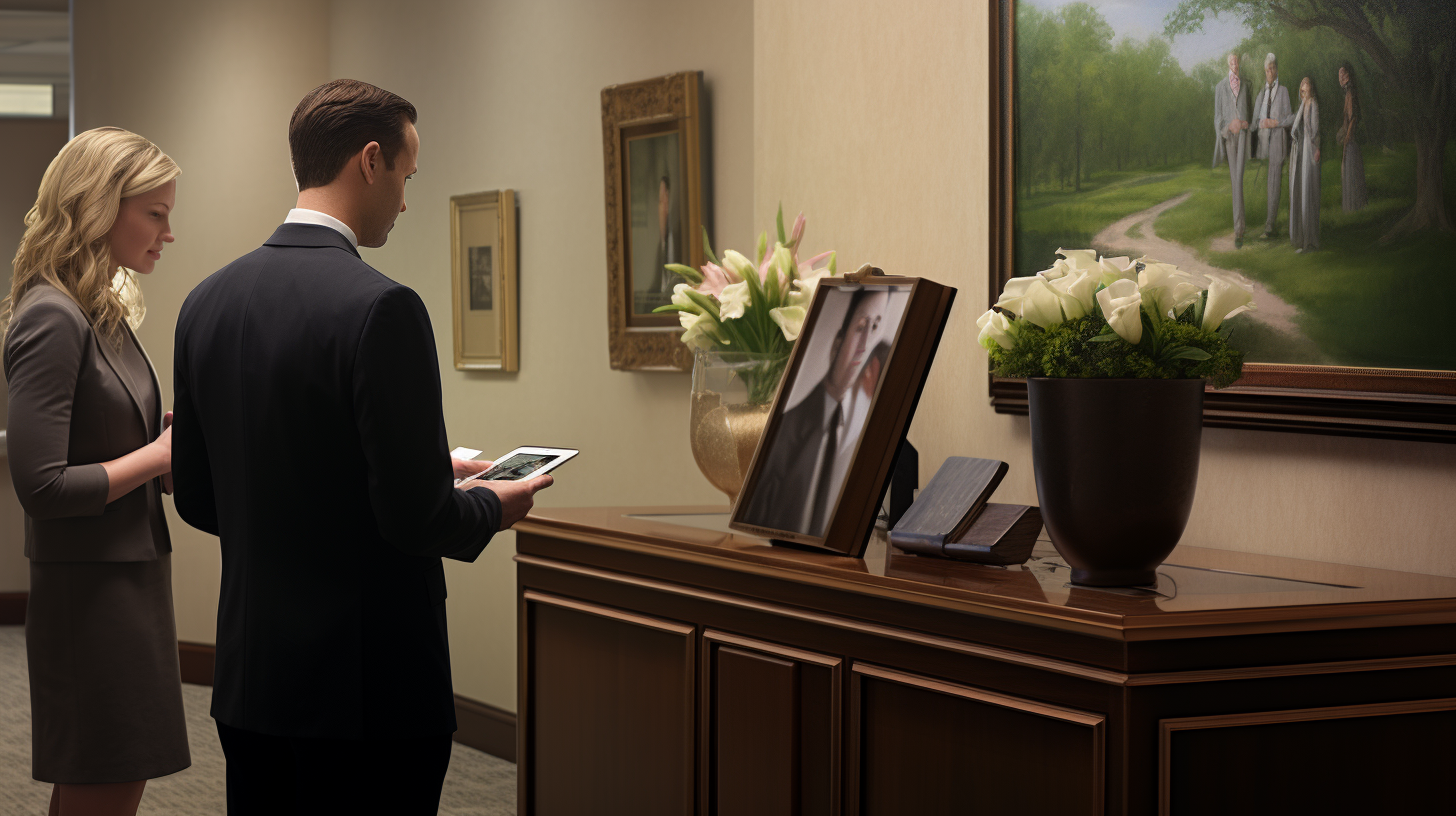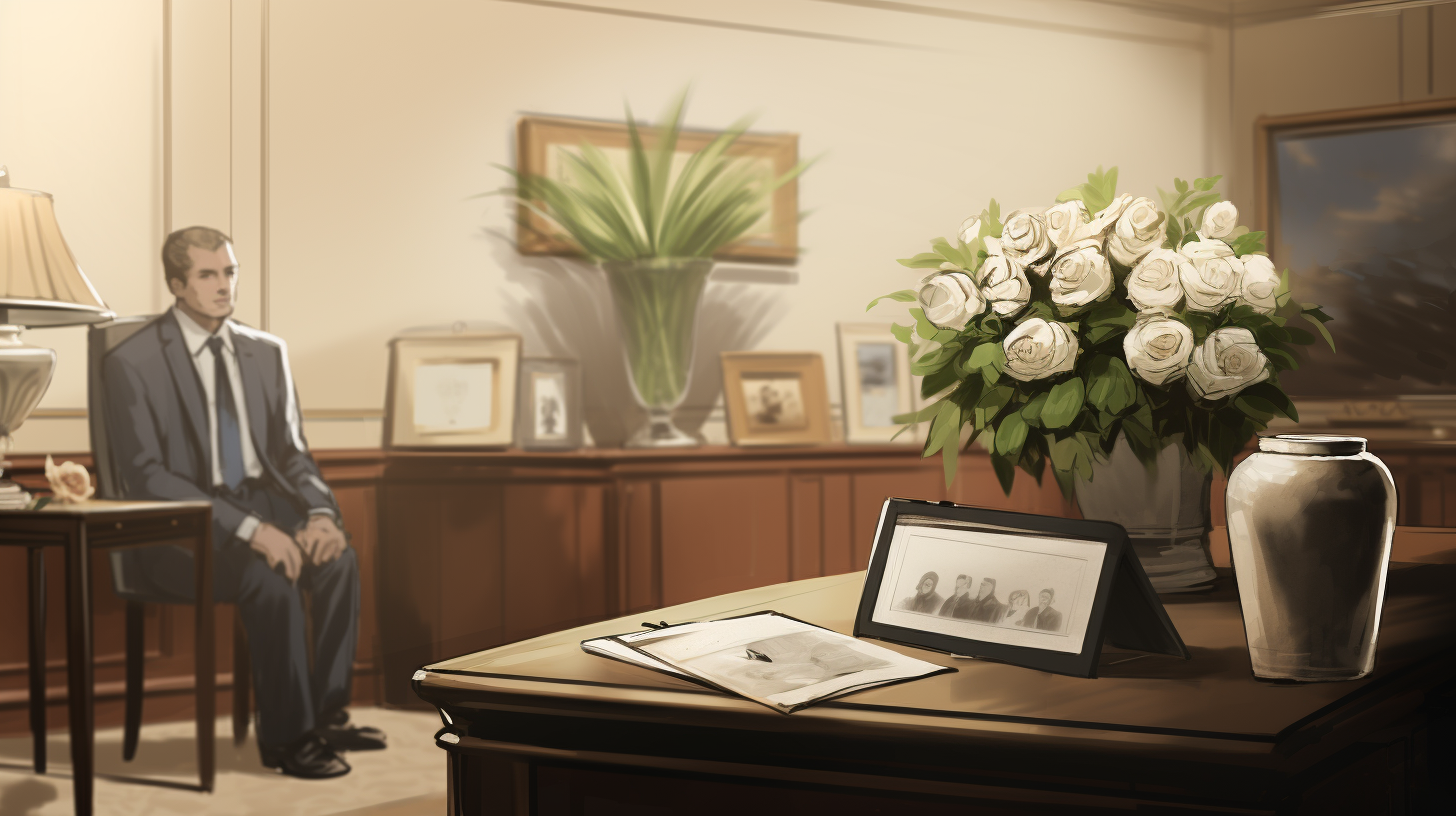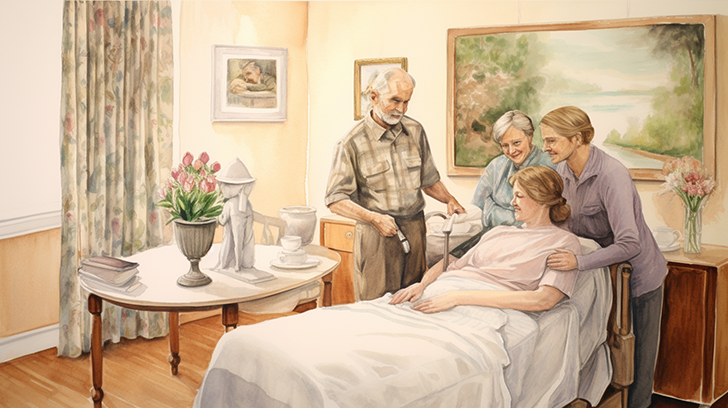- by Tim Thompson
Funeral Planning Essential Checklist And Questions
Understanding Bereavement
Dealing with the loss of a loved one can be an overwhelming and emotionally taxing experience. Following someone’s death, it is common for the spouse or civil partner and other loved ones to seek support from family, friends, or professional counsellors, especially when dealing with grief and strong emotions.
Dealing with the Loss of a Loved One
When someone dies, it’s crucial to have a support system in place to help them navigate through the difficult period of bereavement. Understanding the stages of grief and finding healthy ways to cope with the emotions are important aspects of the healing process after the death of a loved one.
Coping with Grief and Emotions
Coping with grief is a highly individual process, and there’s no right or wrong way to grieve even if a post-mortem examination will be conducted. It’s crucial to acknowledge and express emotions, seek guidance, and care for oneself when dealing with the death of someone you know.
Registering the Death
Steps to registering someone’s death may involve formal procedures to obtain the death certificate, which includes details surrounding the individual’s passing, especially if the body has been examined by a coroner. This crucial administrative process should be initiated promptly after the death and let the office know about the loss of a loved one.
Steps to Registering Someone’s Death
Registering a death typically involves providing the necessary information to the authorities through the death and let the department know about the passing of the person. Friends may want to assist in gathering details such as the deceased’s name, date and place of death, along with other pertinent information.
Obtaining the Medical Certificate
Obtaining the medical certificate, which states the cause of death, is a crucial part of the registration process. When a person dies, particularly in a hospital, a death certificate is usually issued by a medical professional and is necessary to proceed with the funeral arrangements.
Arranging the Funeral
When someone passes away within a civil partnership, you may need to issue a medical certificate and there are several other responsibilities and a checklist for arranging the funeral. This includes coordinating with a funeral director, deciding on a burial or cremation, organizing a memorial service, requesting multiple copies of the death certificate, and addressing other necessary details.
Responsibilities and Checklist for Funeral Arrangements
Arranging a funeral involves various organizational tasks like selecting a funeral home, preparing for the service, and managing the logistics and formalities. Creating a checklist following the death can help ensure that all necessary arrangements are made with the local council and other bodies.
Cremation vs. Burial: Making the Decision
Deciding between cremation and burial is an important consideration, also considering the former’s impact on the organ donor status. The choice between burial and cremation often involves personal, religious, and practical factors, and it’s essential to carefully weigh the options before making a decision for the person who has died.
What arrangements to make when someone dies?
When someone dies, numerous arrangements need to be made. The first step is to report a death, obtain the death certificate, and begin making funeral arrangements in Northern Ireland. Informing family and friends may also be an essential task along with contacting a funeral director, and deciding on cremation or burial. Additionally, organizing a memorial service and managing pre-paid funeral expenses are part of the arrangements that need to be considered.
How long after death are arrangements made?
The timing of making arrangements with the register office, local council, and department for work and pensions after a death was expected varies. Registration of a person’s death promptly, usually within five days, is paramount. One must obtain a medical certificate stating the cause of death, commonly referred to as the coroner. Meeting with a funeral director and making decisions about the funeral arrangements, including the type of service and burial or cremation, typically occurs in the first week after the death in a civil partnership. This allows for the necessary preparations to be completed for the funeral service, including reporting the death to several government departments.
What needs to be arranged when someone dies?
When someone dies, a list of essential arrangements needs to be addressed. This includes registering the death, obtaining the death certificate, and deciding on the type of funeral service since burial can take place or cremation options are available as well. After someone dies, vital tasks need attention such as contacting a funeral director, organizing a memorial service, managing funeral expenses, and laying out the body with respect and dignity. Letting family, friends and the hospital or nursing home know, addressing legal matters, ensuring the death can be registered especially if the parents are not married, and seeking support may be necessary steps after a death.
In what order do you do things when someone dies?
When someone dies, certain steps need to be taken in a specific order for the death to be registered. Primarily, when the person who died may rest in the hospital mortuary, registering the death and securing the medical certificate is of utmost importance. Then, using a funeral director to make arrangements for the funeral and deciding on cremation or burial follows. Organizing the memorial service, informing family and friends, addressing legal matters, and managing funeral expenses are subsequent steps in the process.
What to do immediately after someone dies?
Immediately after someone dies, it’s important to register the death, any death can be registered, obtain the medical certificate, and contact a funeral director within days of the death. Notifying family and friends, addressing legal matters, and ensuring the person’s will and any life insurance policies are located are also immediate tasks. Organizing a memorial service, deciding on burial or cremation, and managing funeral expenses, which can be reported to several government departments, also require prompt attention.
How do you organize someone after they die?
Organizing someone’s affairs after they die in the hospital involves a series of important steps. This includes registering the death, obtaining the medical certificate, and contacting a funeral director to make arrangements for the funeral. Decisions regarding the type of funeral service, whether the deceased was an organ donor dictating burial or cremation choice, and organizing the memorial service are key parts of the organization process. Managing funeral expenses, alerting family and friends, and reporting a death to several government departments are also crucial tasks.
How long after a death is a funeral arranged?
A funeral is usually organized within the first week after death and kept in the hospital mortuary until the service. This allows sufficient time to register the death, obtain the medical certificate, and contact a funeral director to make the necessary arrangements. Post the death, which should be reported to a coroner, decisions about the type of funeral or memorial service, burial, or cremation, and organizing the event play a pivotal role in the process. It’s important to manage funeral expenses and ensure that family and friends are notified of the funeral details.
How long does it take to make funeral arrangements?
The time needed to contact the local council, and funeral home and finalize the funeral arrangements varies, but it generally takes about a week. This includes registering the death, obtaining the medical certificate, and contacting a funeral director to coordinate the service and burial or cremation. Planning the memorial service, managing funeral expenses, and ensuring that family and friends are informed about the funeral arrangements are also part of the process.
How long after death do you have service?
Following the death of a loved one, it’s crucial to swiftly register the death at the register office, using the Tell Us Once service, usually within five days. Acquiring the medical certificate that includes the cause of death is vital, and connecting with a funeral director from the National Association of Funeral Directors to make arrangements for the funeral is usually the next step. Decisions about the type of service, burial, or cremation typically occur within the first week to ensure adequate time for necessary preparations after the person died.
Can you choose not to have a funeral?
Yes, it is possible to choose not to conduct a traditional funeral following a death to find alternative methods of mourning. Some individuals opt for alternatives such as direct cremation or donation to science. It’s essential to consider personal preferences, religious or cultural beliefs, and financial factors when making this decision. Discussing funeral arrangements with a director from Allied and Independent Funeral Directors can provide access to information for guidance and diverse selections.
Did the deceased complete a prearranged funeral plan?
If the deceased completed a prearranged funeral plan, it’s important to review the details outlined in the plan. The specific wishes for the funeral service of the person who has died may include a preference for burial or cremation and any prepaid expenses. Working with the funeral home and relevant government legal advisors is of high importance to understand and execute the predetermined plan effectively following the death.
Did the deceased have a power of attorney on file?
If the person who has died had an estate planning document like power of attorney on file, it’s crucial to understand its implications and how it may affect the arrangements, you may also be given important advice. This legal document may empower a designated individual to make decisions related to the estate, financial matters, and funeral arrangements after the person’s passing. Seeking legal counsel can provide clarity on the responsibilities and authority granted by the power of attorney.
For cremated remains, would you prefer urn burial, scattering, columbarium niche, or something else?
After someone dies, you may want to consider deciding the disposition of cremated remains – it’s a deeply personal choice. Factors such as personal beliefs, cultural traditions, and the deceased’s wishes should be considered. Options like urn burial, scattering in a meaningful location, or placement in a columbarium niche should reflect the individual’s preferences and honour their memory. Debating these choices with family members and consulting with a National Association of Funeral Directors can provide insight and aid in making this decision.
Have you written an obituary, or would you like the funeral home to do so?
Friends may find that writing an obituary is a heartfelt way to commemorate and honour the life of the deceased. If you prefer, the funeral home can assist in crafting an obituary to capture the individual’s life story and share important details about the upcoming services. Collaborating with the funeral home in creating a meaningful obituary can ensure that it accurately reflects the person’s life and provides information for those who wish the service to take place and pay their respects.
How will you pay for the funeral expenses?
Managing funeral expenses is an important aspect of the funeral planning process. Exploring options like personal savings, funeral insurance, or prearranged funeral plans can help cover the costs and the coroner may give insights into this as well. Furthermore, contacting life insurance companies or applying for financial aid from the department for work and pensions, as the person who has died may be eligible, can offer support. Openly discussing financial considerations using a funeral director can offer valuable guidance and aid in making informed decisions. You may also be given insight into the eligibility for various forms of assistance, like a blue badge, and you may be eligible for additional benefits.
Is There Life Insurance to Cover Funeral Expenses?
Reviewing any existing life insurance policies to determine if the coverage can help offset funeral expenses is essential when a person dies, and the death has to be registered within a few days of the death. The proceeds from a life insurance policy may provide financial support for the funeral arrangements and alleviate the financial burden on the family following the death. Understanding the terms and beneficiaries of the policy, as well as the claims process, can facilitate the efficient use of life insurance benefits to cover the funeral costs arising from the death of a loved one.
Funeral Planning: Essential Checklist and Questions After Someone Dies
Should we include a funeral processional in the service?
Deciding whether to include a funeral processional in the service, like a post-mortem examination, is a deeply personal choice. A processional can offer a solemn and meaningful element to the funeral. Family members, friends and those who may have been left behind may attend this event as a way of honouring the life of the deceased. It’s essential to consider the wishes of the deceased and the cultural or religious significance of the processional. Consulting with Relay UK while dealing with the funeral director can provide insights into the options available and ensure that the process aligns with the family’s preferences.
Was the deceased a member of a church or religious organisation?
Understanding the deceased’s religious or spiritual affiliation, especially if it has been referred to the coroner, is crucial for planning a meaningful funeral service. If the deceased was a member of a church or religious organization, their spiritual beliefs and customs may guide the choice of rituals, prayers, and elements incorporated into the service. It’s important to engage with the clergy or representatives of the religious institution to ensure that the funeral arrangements respect the individual’s faith and traditions.
What clothing would you like the deceased to wear at any open-casket events?
Selecting the clothing for the deceased at any open-casket event is a thoughtful and respectful decision. It’s customary to choose attire for the person who died that reflects their style, personality, and preferences. When choosing clothing for the deceased, the spouse or civil partner and other family members may consider garments that hold sentimental value or significance. Working closely with the funeral home or director can help facilitate the selection of appropriate clothing and ensure that the dress aligns with the family’s wishes.
What if I need help with funeral costs?
When dealing with the death of a loved one and facing financial challenges related to funeral expenses, individuals may be able to get various avenues for assistance from work and pensions. Options such as government support programs, charitable organizations, or funeral financing options may offer relief. Engaging with the funeral home or director can provide valuable guidance on navigating these resources and understanding the available assistance to manage pre-paid funeral costs effectively.
What is Advance Funeral Planning?
Advance funeral planning involves making arrangements and decisions regarding one’s funeral ahead of time. This proactive approach allows individuals to document their preferences for the funeral service, burial or cremation, and other relevant details. Advance planning provides peace of mind and relieves the burden on family members during an emotionally challenging time or days of death. Consulting with a funeral professional can help individuals understand the process, formalize their advance funeral plans, and ensure certified copies of the death and other necessary documents are in place.
Who are the primary contacts for funeral arrangements?
Identifying the primary contacts for funeral arrangements is essential for ensuring effective communication and coordination, and the coroner may provide guidance with this. Family members or designated individuals should collaborate closely with the funeral director to make decisions regarding the service, logistics, and other important details. Creating a clear line of communication and establishing the primary contacts can streamline the funeral planning process and ensure that the information about burial and other arrangements aligns with the wishes of the deceased.
Would you like a graveside service?
Considering a graveside service is a significant aspect of funeral planning, offering an intimate and personal opportunity for family and friends to pay their respects. In the event of a death, it’s important to take into account the wishes of the deceased, possibly an organ donor, and the family’s preferences when deciding whether to include a graveside service. Collaborating with the funeral director can facilitate the logistical arrangements and ensure that the graveside service reflects the desired sentiments and respects the individual’s memory.
Would you like an open or closed casket service?
Determining whether to have an open or closed casket service is a deeply personal decision that often considers cultural, religious, and individual preferences. An open casket service allows for viewing and paying respects to the deceased, while a closed casket service may offer a more private and intimate setting for the service. Discussing the options with the funeral home and considering the wishes of the deceased and family members can help in making this important decision.


